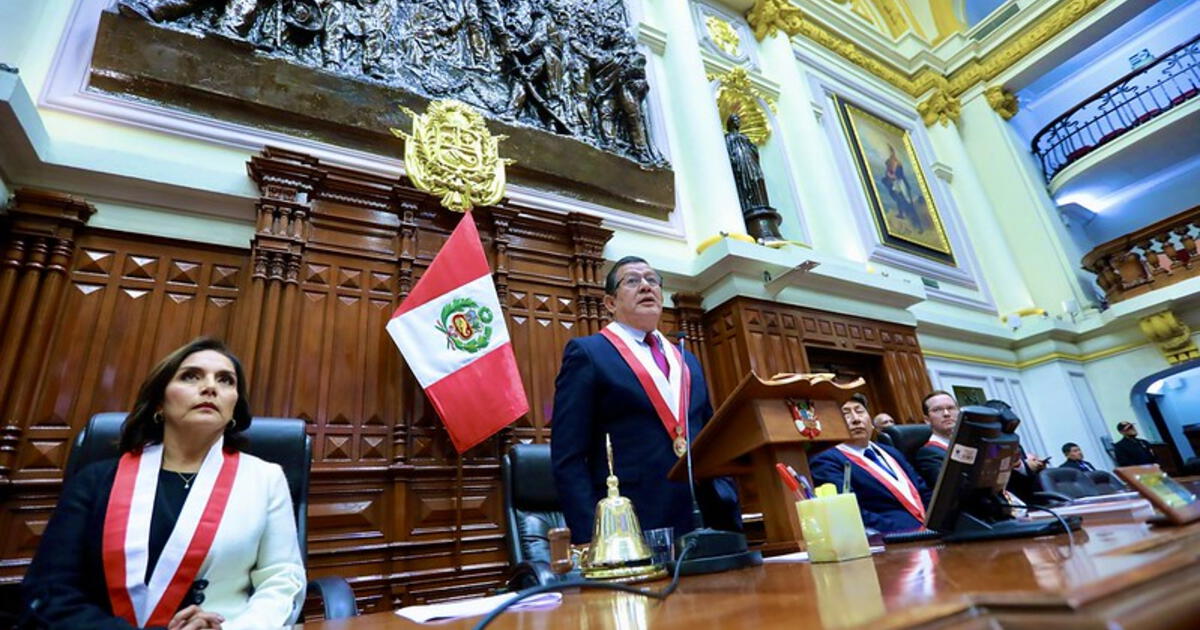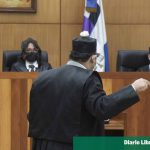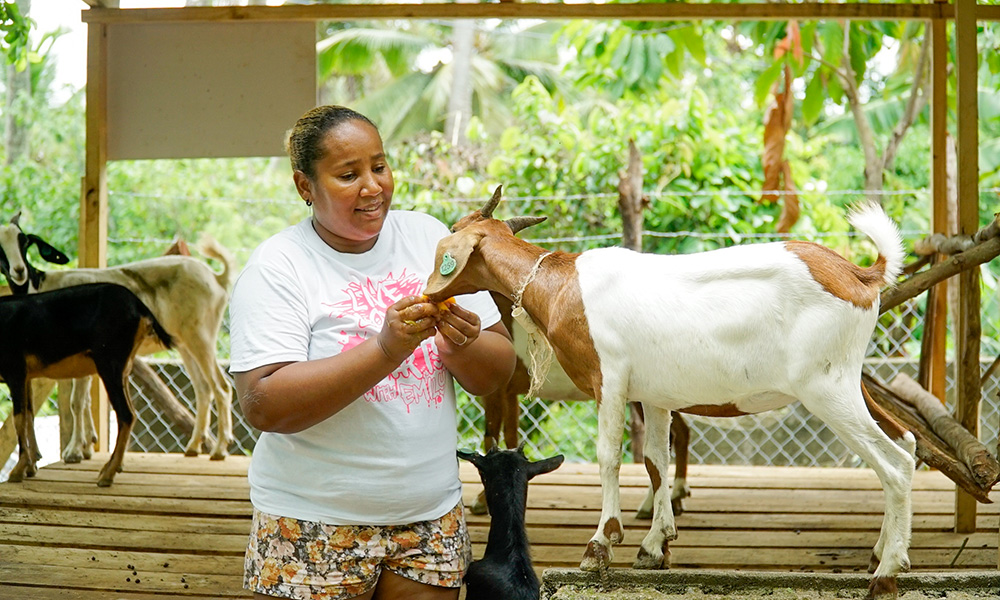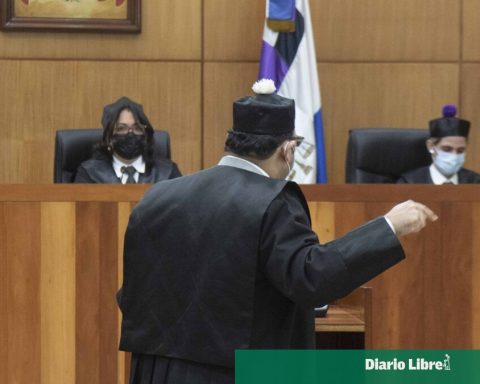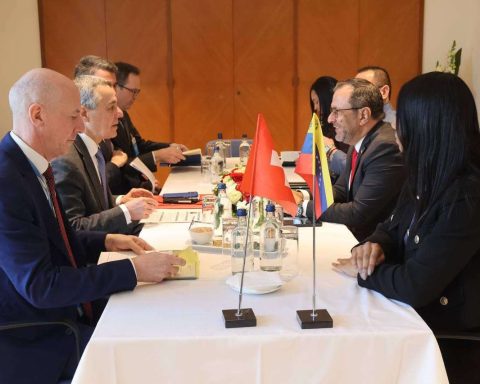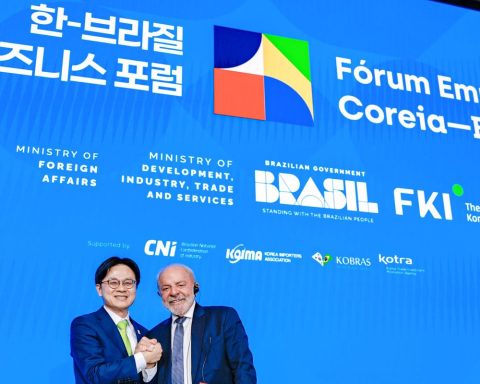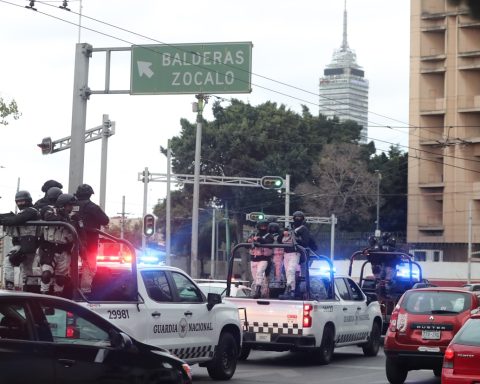The counter-reforms that Congress is waiting to approve are a package against the judicial and electoral system and norms that aim to persecute NGOs, sanction judges and prosecutors and increase the number of deputies and senators when bicameralism returns.
It is now up to the new Board of Directors, chaired by the congressman of Alianza Para el Progreso (APP), Eduardo Salhuana, and his allied benches, to determine how quickly these counter-reforms advance in their respective committees and are scheduled in the Plenary.
Counter-reforms from the Constitutional Commission
Last term, the Constitutional Commission, chaired by Fujimorist Martha Moyano, promoted laws against the National Justice Board (JNJ), the National Elections Jury (JNE) and the electoral authorities and rules.
The Congress has yet to decide whether or not to approve in plenary session the constitutional reform opinion of that commission – which is based on an initiative by legislator Glady Echaiz, of Honor and Democracy – to eliminate the National Board of Justice (JNJ) and create the National School of the Judiciary.
The ruling also proposes that the heads of the National Office of Electoral Processes (ONPE) and the National Registry of Civil Status (Reniec) be elected by Parliament. The heads of both institutions, Piero Corvetto and Carmen Velarde, were ratified in their positions by the JNJ.
However, in Pasos Perdidos they are waiting for the Constitutional Court (TC) to annul the decisions taken by the JNJ after the reinstatement of magistrates Inés Tello and Aldo Vásquez. Otherwise, they will appeal to legislative modifications so that Corvetto and Velarde are not electoral authorities during the general elections of 2026.
Added to this is the fact that the Plenary has not yet submitted for debate the opinion of the Constitutional Commission promoted by the Fujimorism for amend article 99 of the Magna Carta and be able to subject electoral authorities to impeachment and political trial processessomething that conditions the autonomy of these officials.
Furthermore, the hemicycle has yet to convene the Second vote on the constitutional reform that changes the method of electing magistrates of the National Elections Jury (JNE) representing lawyers.
Currently, this authority is elected by the Lima Bar Association (CAL), but this initiative aims to have all the bars in the country vote.
The Constitutional Commission He also promoted a rule so that The president of the JNE is elected by the votes of the five members of the plenary session of this electoral court. Currently, the head of the jury is the judge representing the Supreme Court.
And regarding the electoral rules, this commission attempted to approve a substitute text that modifies article 34 of the Constitution to prevent people who were sentenced, such as Antauro Humalacan run in 2026, but omits the crimes committed by the former dictator Alberto Fujimori.
That law also failed and had to be returned to the Constitutional Commission to be reformulated.
Finally, there is the constitutional reform promoted by Fuerza Popular (FP), Alianza Para el Progreso (APP) and Podemos Perú to increase the number of deputies and senators in the bicameral Congress to 237. The text has not yet been approved by the Constitutional Commission.
These six laws were not approved in the last legislature. Legislative sources explained that this was because, since they were constitutional reforms, the promoters of these bills did not have the 87 votes required by the Congressional regulations to give them the green light.
Other counter-reforms
There are also initiatives that caused controversy and are not constitutional reforms. The Moyano commission approved in the previous legislature a ruling – based on a project of the Ombudsman, Joshua Gutierrez – for enable substitutes to fill the JNJ plenary session regardless of the qualification score. The Plenary Session has yet to put it on the agenda.
The second vote in the House of Commons is also missing. law that eliminates regional movements. In principle, when it was approved in the first vote, the Association of Regional Movements protested and announced that he was going to join the protests against the regime of Dina Boluarte and the Congress.
However, this association later backed down because it reached an “understanding” with the congressmen and parliamentary groups. One of the parliamentary groups that will not support the elimination of the regional movements is Renovación Popular. But they are a group with few legislators. This is not a guarantee.
Another law that caused a stir – even from the international community – was the law that pursues the financing and activities of NGOs. The rule was promoted in the Foreign Relations Committee, which is chaired by Alejandro Aguinagafrom Fuerza Popular. Until two weeks ago, it was on the agenda of the Permanent Commission, but it was not voted on.
In the Economic Commission, on the other hand, the parliamentarians approved on June 30 a report that repeals the law on prevention and light pollution. Fhigh that is scheduled in the Plenary.
On July 5th the Justice Commission approved a ruling on a Fujimori proposal to prevent the Prosecutor’s Office from requesting preliminary detention or preventive imprisonment against police officers who use their weapons while on active duty.
On July 8, the congressman of Peru Libre, Waldemar Cerronpresented to this commission a bill that allows for reporting judges and prosecutors in any jurisdiction.
The distribution is coming
With these pending counter-reforms, it is therefore important to manage the Congressional committees because the presidents of these working groups are the ones who support and modify these initiatives.
The distribution of the presidencies of the Congressional commissions will depend on the will of the allied benches that dominate the Board of Directors and the others that make up the self-proclaimed “Democratic Bloc.” They have enough votes to impose their distribution in the Board of Spokespersons.
In addition, they have the votes to decide which topics are included in the agenda of the Plenary. At the time of closing this note, it was known that Popular Force’s interest in maintaining control of the Constitutional CommissionsForeign Affairs. In the case of APP, in addition to the ordinary commissions assigned to him, he would retain the presidency of the Subcommittee on Constitutional Accusations (see breakdown). While Peru Libre continues to be interested in leading the Justice Party, Somos Perú for Decentralization, Popular Action for the Economy and Podemos Perú for the Budget.
There is no one who can stop these aspirations.
The role of the Subcommittee on Constitutional Accusations
The Congressional Subcommittee on Constitutional Accusations has pending the constitutional complaints against the president of the JNE, congressmen accused of alleged salary cuts and in the Los Niños case, and against former president Francisco Sagasti.
The Subcommittee is not an ordinary committee, it is attached to the Permanent Commission. Only members of the Permanent Commission can join it. The president of the Permanent Commission is the head of the Board of Directors, that is, Salhuana, of APP.
| Bill | Promoter / Author | State |
| Constitutional reform to eliminate the JNJ and create the National School of the Judiciary | Gladys Echaiz (Honor and Democracy) | Pending discussion in the Plenary Session |
| Constitutional reform so that one of the JNE judges is elected by all lawyers in Peru | Free Peru | Pending second vote in the Plenary |
| Constitutional reform so that all members of the JNE can elect their president | People’s Force | Pending approval by the Constitutional Committee |
| Constitutional reform of article 99 of the Constitution to subject electoral authorities to impeachment and political trial | Popular Force, APP, Avanza País and Popular Action | Pending discussion in the Plenary Session |
| Constitutional reform of article 34 of the Constitution to regulate the impediments to the candidacy of convicted persons | Popular Renewal | Pending discussion in the Plenary Session |
| Constitutional reform that increases the number of deputies and senators to 237 in the bicameral Congress | Popular Force, APP and Podemos Peru | Pending approval by the Constitutional Committee |
| Law that fills the JNJ by enabling low-qualification substitutes | Ombudsman’s Office | Pending discussion in the Plenary Session |
| Second vote on the law that eliminates regional movements | Popular Action and Somos Peru | Pending second vote in the Plenary |
| Law that pursues the financing and activities of NGOs | People’s Force | Pending discussion in the Plenary Session |
| Law repealing the law on prevention and light pollution | APP | Pending discussion in the Plenary Session |
| Law that prevents the Prosecutor’s Office from requesting the arrest of police officers who use their weapons while on duty | People’s Force | Pending discussion in the Plenary Session |
| Law that allows to report prosecutors and judges in any jurisdiction | Free Peru | Pending approval by the Justice Commission |
